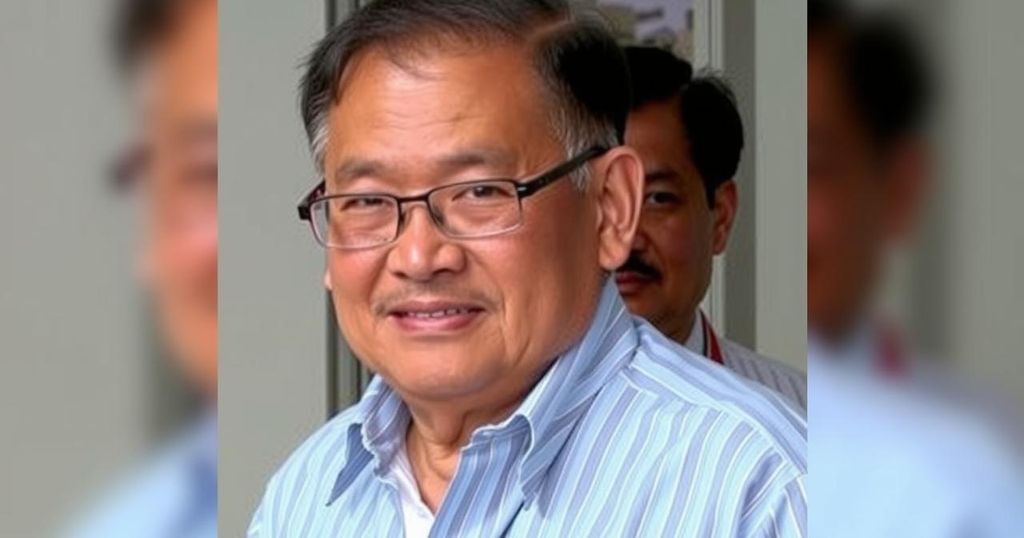Thai Authorities Apprehend Suspected Killer of Cambodian Lawmaker

Thai authorities have detained Ekkalak Paenoi, accused of murdering Lim Kimya, a former opposition lawmaker, in Bangkok. Ekkalak has been charged with premeditated murder after confessing to the crime. Lim’s death raises concerns about the escalating violence against political figures in Cambodia, a country marked by years of governmental repression against dissent.
BANGKOK (Reuters) – Thai police have taken custody of Ekkalak Paenoi, a 41-year-old motorcycle taxi driver, who is accused of assassinating Lim Kimya, a former Cambodian opposition lawmaker, during an attack in Bangkok. Ekkalak was apprehended after crossing into Cambodia, where he was arrested and subsequently handed over to Thai authorities. He has been charged with premeditated murder following Lim’s shooting on a Tuesday afternoon shortly after arriving in Thailand. Assistant National Police Chief Somprasong Yentuam stated, “The suspect confessed to the crime and to being the person in the arrest warrant.” Lim, a dual Cambodian and French citizen, was shot three times by an assailant hours after traveling to Bangkok with his family.
Lim Kimya was affiliated with the Cambodia National Rescue Party, which was dissolved ahead of the 2018 elections amid allegations of treason, which the party strongly refuted. Although he was not a leading figure within the opposition, his death has raised concerns about the ongoing political repression in Cambodia, where dissent against the ruling Cambodian People’s Party has been met with severe reprisals. Authorities have not yet established a clear motive for his assassination, and investigations continue into the circumstances surrounding the crime.
The assassination of Lim Kimya highlights the ongoing peril faced by opposition politicians in Cambodia. Following the dissolution of the Cambodia National Rescue Party, a significant portion of its members has experienced repression, including imprisonment and exiles. The Cambodian People’s Party, which has dominated the political landscape for over forty years, is known for its stringent measures against opposition figures, leading to a climate of fear among those who oppose the government. Lim’s murder raises pressing questions regarding the safety of dissenters and the implications of such acts of violence in the broader struggle for democratic expression. The connection of the accused Ekkalak Paenoi with the military indicates potential deeper political ties or motives that are yet to be unveiled. As the investigation unfolds, the links between personal motives, political repression, and the risks faced by those opposing the established order will be crucial areas of scrutiny.
The recent apprehension of Ekkalak Paenoi serves as a stark reminder of the violence that plagues political dissent in Cambodia. While the immediate case pertains to an individual act of murder, it reflects the broader, systemic issues of repression faced by opposition figures in a politically charged atmosphere. As investigations proceed, understanding the motives behind Lim Kimya’s assassination will be essential in assessing the continuing threat to political expression and opposition in the region.
Original Source: www.usnews.com







